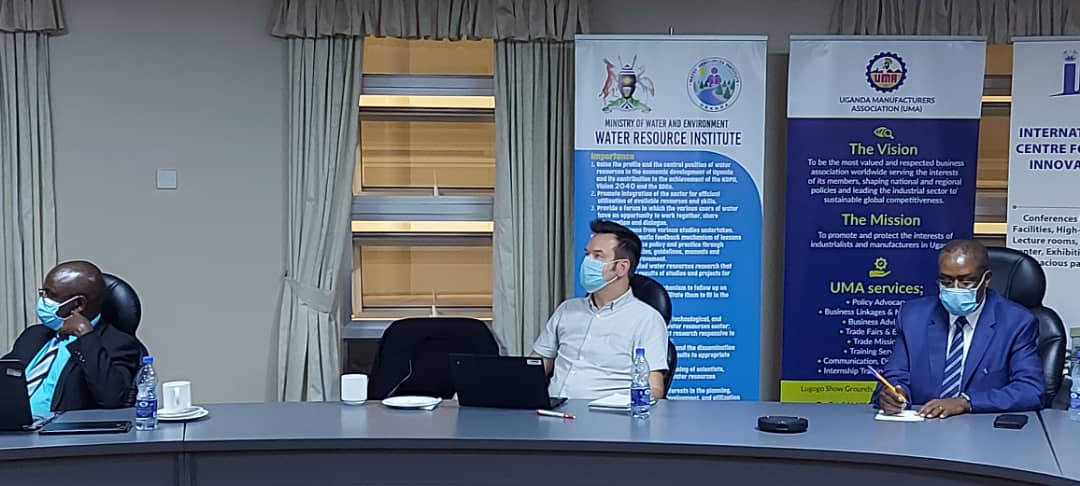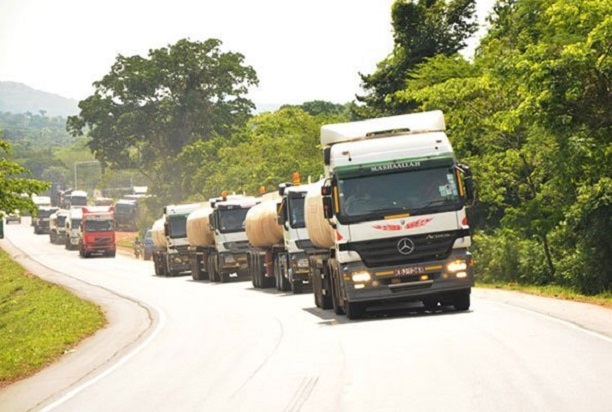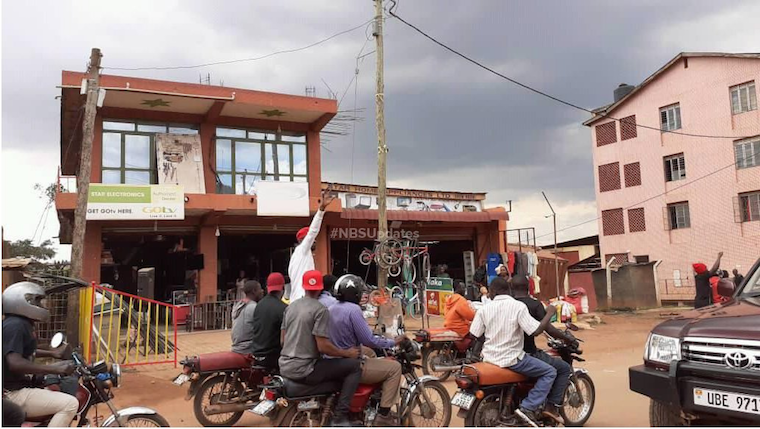The Ministry of Water and Environment, Kampala Capital City Authority, National Water and Sewerage Corporation, Uganda Manufacturers Association with support from the GIZ Natural Resource Stewardship (NatuReS) programme hosted Uganda’s first Water Security E-Conference on 17th September 2020. The E-Conference was held in a virtual format via Zoom.
The Water Security E-Conference was part of the Uganda Water and Environment Week (UWEWK) 2020 which is a week for knowledge exchange, dialoguing, learning for improvement of Uganda’s water and environment resources. UWEWK 2020 seeks to contribute towards the attainment of sustainable transformation in achieving Ugandan National Development Plan and Vision 2040.
Partnerships across sectors (government, civil society, community and government) offer more benefits in protecting water resources and promoting sustainable management of the environment. Dr Callist Tindimugaya, Commissioner from the Ministry of Water and Environment stated that,” It is everyone’s responsibility to make sure that we are all contributing towards water security in Kampala Metropolitan Area as this not only affects the city but the areas that surround the city too”.
Water and environmental resources are key for the development and economic growth of Greater Kampala. Considering water is life and these resources have various uses such as maintaining public health and human wellbeing, providing of water for domestic and industrial use, supporting job/ livelihood opportunities such as eco-tourism, agriculture and fishing,natural flood control by the wetlands and forests, urbanisation and industrialization have had negative impacts on the urban environmental quality, especially now due to urban prosperity experienced in Greater Kampala.
Ongoing major water and environment challenges in Greater Kampala include improper garbage disposal, deforestation, degradation of wetlands, poor drainage systems, water pollution from industries and residences, flooding and limited basic services in informal settlements (potable water, sanitation and waste management). The discussion at the e-conference focused on bringing on board all actors to solve these environmental challenges.
Mr. Mansuli Senyondo, an UMA Board Member- Chairman, Education and skills Subcommittee emphasised that “the private sector should partner with the government and communities to protect and motivate industries towards green manufacturing and investing in water security.”
The Water Security Action and Investment Plan (WSAIP) for the Greater Kampala Metropolitan Area was presented to the audience for the very first time. This is the first plan to be owned by multiple stakeholders where they committed to partnering and undertaking the actions to jointly address water security. The WSAIP presented current and anticipated future of water and environmental challenges in Greater Kampala. The plan also provides a 13 priority projects that would be jointly delivered by stakeholders to achieve water security. Throughout the development of WSAIP, there was consensus by all stakeholders about the need for to plan and act together in addressing water and environment challenges. The plan will be implemented by various other actors ranging from Private sector, NEMA, Local governments- Wakiso and Mukono, Municipalities- Entebbe, Nansana, Kira, Mukono and Makindye-Ssabagabo, National Forestry Authority, NGOs and private sector to mention a few. The Deputy Managing Director of National Water and Sewerage Corporation, Eng. Johnson Amayo made closing remarks at the e-conference where he shared that “Outcomes of WSAIP will foster a more collaborated approach towards the drive of water Security”.





